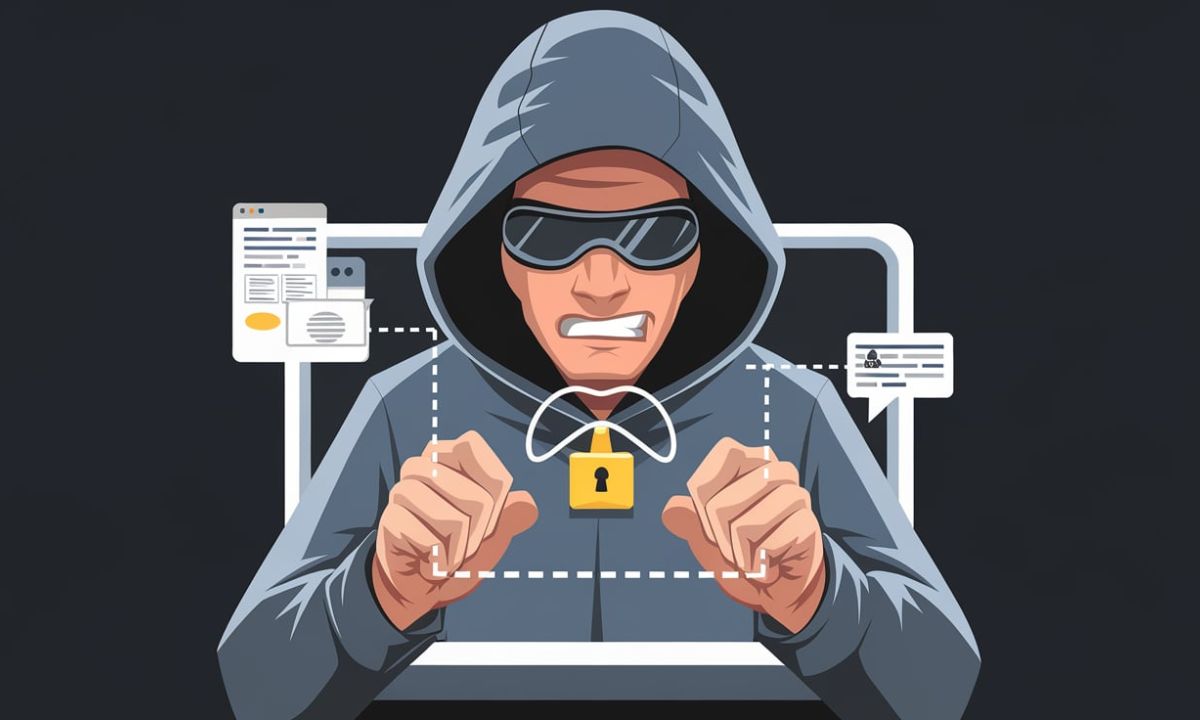In a world where technology rules, cybersecurity is no longer just a technical issue—it’s a critical necessity. Data breaches, ransomware attacks, and other forms of cybercrime have become so frequent that businesses are scrambling to protect themselves from the next big attack.
At the forefront of this defense stands HackerOne, a platform empowering ethical hackers to identify and resolve security flaws. Backed by $300 million in funding and with a recent $4 million bug bounty payout, Hackerone-300m-4m-toulasbleepingcomputer is gearing up to redefine the cybersecurity landscape.
This article delves into the impact of these developments and explores the growing role of bug bounty programs, ethical hacking, and the influence of AI on the future of cybersecurity.
The Growing Importance of Cybersecurity in a Digital World
As technology advances, the threat landscape grows more dangerous. From high-profile companies to everyday consumers, no one is immune to cyberattacks. In 2023 alone, cybercrime is expected to cause damage totaling over $10.5 trillion globally, a massive leap from the $3 trillion in 2015. These numbers paint a stark picture of the importance of cybersecurity in protecting both individual privacy and global economies.
Cybersecurity: A Necessity, Not a Choice
Every day, thousands of cyberattacks target businesses, governments, and individuals. These threats include:
- Phishing schemes designed to trick people into revealing sensitive information.
- Ransomware attacks that hold digital data hostage until payment is made.
- Data breaches that expose millions of personal records.
Top Cybersecurity Threats in 2024
| Threat | Description | Impact |
| Ransomware | Malware that encrypts data until a ransom is paid. | Business disruption, financial losses, data theft |
| Phishing | Fraudulent emails or messages tricking users into giving up sensitive data. | Credential theft, unauthorized access |
| DDoS (Distributed Denial of Service) | Overloading systems to make services unavailable. | Service outages, financial loss |
| Data Breaches | Unauthorized access to sensitive information. | Loss of customer trust, regulatory penalties |
The importance of cybersecurity is undeniable. The cost of cyberattacks—whether in financial terms, reputation, or lost data—makes investing in cybersecurity one of the most pressing needs for companies today.
Why Bug Bounty Programs Are Essential
In the battle against cyber threats, bug bounty programs have become a critical weapon in the arsenal of cybersecurity. By incentivizing ethical hackers to discover and report vulnerabilities, these programs provide a cost-effective and proactive approach to identifying potential weak spots before they can be exploited.
How Bug Bounty Programs Work
At their core, bug bounty programs are designed to encourage independent security researchers (often referred to as ethical hackers or white hat hackers) to identify vulnerabilities in a company’s system. When these hackers find bugs, they report them to the company in exchange for a monetary reward, known as a bounty.
Benefits of Bug Bounty Programs:
- Cost Efficiency: Hiring full-time security teams can be prohibitively expensive, especially for small or medium-sized businesses. By running a bug bounty program, companies can tap into a worldwide talent pool of ethical hackers who offer their skills at a fraction of the cost.
- Diverse Skillsets: No one security team can match the collective expertise of thousands of independent security professionals. Bug bounty programs harness the skills of hackers with different specializations, improving the odds of identifying complex vulnerabilities.
- Proactive Defense: Instead of waiting for a cyberattack, bug bounty programs allow companies to take a proactive approach to vulnerability management. By identifying and fixing security flaws before they are exploited, businesses can prevent potentially devastating breaches.
Vulnerability Management with Bug Bounty Programs
In the constantly evolving world of cyber threats, vulnerability management has never been more important. By incorporating bug bounty programs into their security strategy, companies can ensure that vulnerabilities are not just identified but also prioritized and addressed efficiently.
Stages of Effective Vulnerability Management:
| Stage | Purpose |
| Identification | Uncovering potential security flaws through ethical hackers. |
| Assessment | Determining the severity and potential impact of the vulnerability. |
| Prioritization | Ranking vulnerabilities based on their risk and urgency for remediation. |
| Remediation | Fixing or patching the vulnerability to secure the system. |
| Monitoring | Continuous monitoring to ensure that the vulnerability does not resurface or lead to other issues. |
The rise of bug bounty programs has transformed cybersecurity from a reactive to a proactive process. By leveraging the skills of ethical hackers worldwide, companies can catch security flaws early and improve their overall security posture.
How HackerOne Plans to Utilize the $300 Million Funding

The recent $300 million in cybersecurity funding raised by HackerOne is set to transform the company’s operations and enhance the capabilities of its bug bounty platform. This funding signals the growing recognition of the role ethical hackers play in defending against cyber threats and reflects a broader industry trend toward investing in cybersecurity.
Where the Funding Will Go
- Expansion of HackerOne’s Platform: HackerOne plans to scale its bug bounty platform to attract more ethical hackers and partner with more companies.
- Increased Payouts for Ethical Hackers: By increasing bug bounty rewards, HackerOne can incentivize even more skilled hackers to participate.
- Investment in AI-Driven Security Tools: Integrating artificial intelligence (AI) into vulnerability management will help HackerOne detect threats more quickly and efficiently.
- Partnerships with Governments: HackerOne is looking to partner with governmental organizations to protect critical infrastructure from cyber threats.
The Role of Toulas and BleepingComputer in the Cybersecurity Space
In the world of cybersecurity, Toulas and BleepingComputer have become trusted sources for breaking news and expert insights into the latest developments. They have been key players in covering HackerOne’s growth and its impact on the cybersecurity landscape.
Toulas and BleepingComputer’s View on Hackerone-300m-4m-toulasbleepingcomputer Growth
Toulas, a security journalist and contributor to BleepingComputer, has written extensively about the rising importance of bug bounty programs and HackerOne’s role in democratizing cybersecurity. BleepingComputer has been an advocate for ethical hacking, frequently reporting on significant bug bounty payouts and the role of HackerOne’s platform in securing critical infrastructure.
According to BleepingComputer, the Hackerone-300m-4m-toulasbleepingcomputer initiative represents a major leap forward for vulnerability management, as it fosters global collaboration between ethical hackers and businesses seeking to defend themselves from cyber threats.
Recent $4 Million Bug Bounty Payout: A Milestone for HackerOne
In 2024, HackerOne made headlines by distributing $4 million in bug bounty payouts. This record-setting figure highlights the increasing value that companies place on ethical hackers and the crucial role they play in defending against cyberattacks.
The Financial Stakes in Cybersecurity
The cost of cyberattacks is rising exponentially. A single data breach can cost a company an average of $4.24 million. With such high stakes, businesses are turning to bug bounty programs as a way to protect themselves from financial ruin.
The $4 million payout also demonstrates the growing importance of cybersecurity funding and the value companies are willing to place on vulnerability management. By investing in ethical hackers, companies can avoid the steep costs associated with data breaches, system downtime, and lost consumer trust.
The Impact of AI and Machine Learning on Cybersecurity
In recent years, the integration of artificial intelligence (AI) and machine learning into cybersecurity practices has dramatically enhanced the speed and accuracy of threat detection.
The Future of AI in Cybersecurity
The role of AI in cybersecurity is to automate tasks that were once handled manually by security professionals. For example, AI can quickly analyze vast amounts of data, identify anomalies, and predict potential security breaches before they happen.
Key Benefits of AI-Driven Cybersecurity:
- Real-Time Threat Detection: AI can scan systems for potential threats in real-time, enabling faster response times to cyberattacks.
- Automated Vulnerability Management: AI tools can help automate the process of identifying and prioritizing vulnerabilities, making the overall process more efficient.
- Advanced Threat Prediction: By analyzing historical data, AI systems can predict potential security breaches and recommend proactive steps to mitigate them.
With AI becoming a critical part of cybersecurity, HackerOne’s investment in AI-driven tools will enable them to remain at the forefront of vulnerability management and help their clients stay one step ahead of cybercriminals.
Collaborative Cybersecurity: The Power of Collective Defense

One of the most exciting developments in the world of cybersecurity is the rise of collaborative defense. This approach involves bringing together governments, companies, and ethical hackers to create a unified defense against cyber threats.
Why Collaboration Matters
Collaboration is essential in the fight against cybercrime. By pooling resources and sharing knowledge, organizations can identify new threats faster and develop more effective defenses.
Benefits of Collaborative Cybersecurity:
- Shared Knowledge: When one organization identifies a new cyber threat, they can share it with others, helping everyone to defend themselves more effectively.
- Diverse Perspectives: Ethical hackers from around the world bring different perspectives and approaches to identifying vulnerabilities.
- Global Defense Network: Collaborative cybersecurity creates a global defense network that can respond to emerging threats more quickly.
The Skills Gap: A Growing Challenge for Cybersecurity
Despite the growing demand for cybersecurity professionals, the industry faces a significant skills gap. According to recent reports, there are more than 3.5 million unfilled cybersecurity jobs worldwide. This shortage leaves many companies vulnerable to cyberattacks.
Bridging the Skills Gap with HackerOne
One of the ways HackerOne is addressing this challenge is by providing training opportunities for aspiring ethical hackers. Through their platform, HackerOne offers tutorials, workshops, and resources to help individuals build the skills they need to succeed in the cybersecurity industry.
By offering these opportunities, HackerOne is not only helping to close the cybersecurity skills gap but also ensuring that companies have access to a broader pool of talent.
Democratizing Cybersecurity Through Bug Bounty Programs
One of the most transformative impacts of HackerOne’s platform is the democratization of cybersecurity. Through bug bounty programs, individuals from around the world—regardless of their location or background—can contribute to the defense of critical systems and earn rewards for their efforts.
How HackerOne is Democratizing Cybersecurity
HackerOne’s platform allows anyone with the right skills to participate in bug bounty programs, regardless of their formal education or professional background. This open approach makes cybersecurity more inclusive and accessible.
Key Features of Cybersecurity Democratization:
- Accessibility: With bug bounty platforms, individuals from underrepresented regions or low-income backgrounds can contribute to global cybersecurity efforts.
- Inclusivity: HackerOne’s platform has opened the door for diverse individuals to participate, providing them with a path into the cybersecurity industry.
- Affordability: Smaller businesses can now protect themselves from cyber threats without needing to hire expensive cybersecurity teams.
The democratization of cybersecurity ensures that everyone can contribute to a safer internet, making cyber defense more robust and far-reaching than ever before.
The Ethical Hacker: A New Kind of Hero
In the past, hackers were often viewed as criminals and outlaws. But in today’s world, ethical hackers have emerged as the heroes of the cybersecurity world. These individuals use their skills to help companies and organizations defend themselves against malicious attacks, making the internet safer for everyone.
Ethical Hacking as a Career
For many, ethical hacking is now a viable and rewarding career. Platforms like HackerOne offer ethical hackers the opportunity to earn a living while contributing to the security of some of the world’s largest companies. With rising demand for cybersecurity professionals, ethical hacking is quickly becoming one of the most sought-after professions.
The Evolution of Vulnerability Management
Vulnerability management has come a long way in recent years. What was once a reactive process, where companies only addressed security issues after they had been exploited, has now become a proactive effort. The rise of bug bounty programs has played a significant role in this shift.
Proactive Vulnerability Management
Instead of waiting for cybercriminals to exploit vulnerabilities, companies are now taking a proactive approach to vulnerability management. By implementing bug bounty programs, they can identify and fix security flaws before they are exploited.
Economic Benefits of Bug Bounty Programs
Beyond improving security, bug bounty programs also provide significant economic benefits. By paying ethical hackers to identify vulnerabilities, companies can avoid the devastating financial consequences of a major data breach.
Economic Impact of Bug Bounty Programs
- Cost Savings: Detecting and fixing vulnerabilities early is far cheaper than dealing with the fallout from a successful cyberattack.
- Job Creation: Bug bounty programs have created new jobs for ethical hackers, helping to stimulate the cybersecurity industry.
- Industry Growth: The cybersecurity industry is expected to grow by 12% annually, driven in part by the rising popularity of bug bounty programs.
Cybersecurity as a Competitive Advantage
In today’s digital marketplace, cybersecurity is no longer just about protection—it’s also a competitive advantage. Consumers are more likely to trust companies that prioritize the security of their data, and businesses that can demonstrate strong cybersecurity practices are more attractive to potential customers and partners.
Global Impact of HackerOne’s Growth
As HackerOne continues to grow and expand its platform globally, its impact on the cybersecurity industry will be felt around the world. With more companies and ethical hackers joining the platform, HackerOne is helping to create a global defense network capable of responding to emerging threats in real-time.
The Role of Education in HackerOne’s Mission
Education is a central pillar of HackerOne’s mission. By providing resources and training opportunities to aspiring ethical hackers, HackerOne is not only helping to close the cybersecurity skills gap but also ensuring that businesses have access to the talent they need to stay secure in an increasingly digital world.
Final Words
The Hackerone-300m-4m-toulasbleepingcomputer initiative is a game-changing moment in the world of cybersecurity. By investing in ethical hackers, advancing AI-driven cybersecurity tools, and promoting the democratization of cybersecurity, HackerOne is setting a new standard for what it means to defend the digital world. As cyber threats continue to evolve, the role of bug bounty programs and ethical hackers will be critical in securing the future of the internet.
FAQ’s
What is HackerOne and why did they receive $300 million in funding?
HackerOne is a bug bounty platform that connects organizations with ethical hackers to find and fix security vulnerabilities. They received $300 million in funding to expand their services and enhance their cybersecurity efforts.
How do bug bounty programs work?
Bug bounty programs reward ethical hackers for identifying and reporting security vulnerabilities in an organization’s systems. Hackers receive bounties based on the severity of the flaws they find.
What impact is AI having on cybersecurity?
AI enhances cybersecurity by improving threat detection, automating responses, and predicting vulnerabilities. It helps organizations identify and mitigate risks more effectively and efficiently.
How is HackerOne addressing the cybersecurity skills gap?
HackerOne addresses the cybersecurity skills gap by offering training and resources for aspiring ethical hackers, helping them build necessary skills and encouraging diverse participation in the industry.








